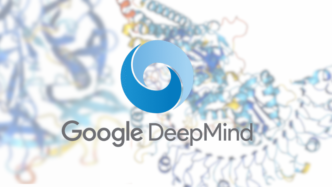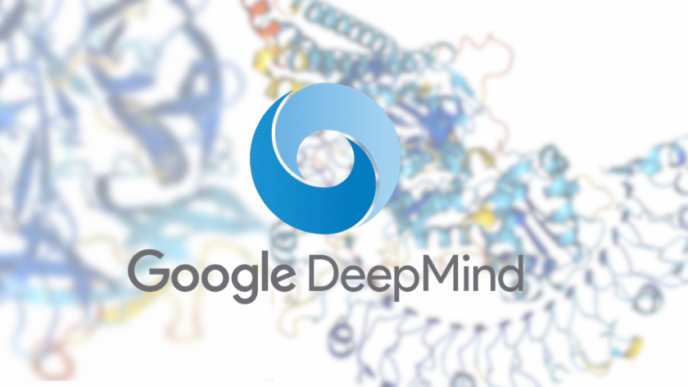Discover the basics, potential, and revolutionary implications of quantum computing
Quantum computing is rapidly emerging as one of the most transformative fields in technology. Unlike traditional computers, which process data in binary form, quantum computers use the principles of quantum mechanics to handle data in entirely new ways. With the potential to revolutionize industries from cryptography to pharmaceuticals, quantum computing is poised to reshape the future. But what exactly is quantum computing, and how does it work? Let’s explore.
The Basics of Quantum Computing
Classical vs. Quantum Computing
In classical computing, information is processed in bits, which represent data as either a 0 or a 1. These bits serve as the fundamental building blocks of all operations in traditional computers. However, quantum computing uses quantum bits, or qubits, which can exist in multiple states at once due to a principle known as superposition.
This difference means that while classical computers handle tasks in a step-by-step process, quantum computers have the potential to perform multiple calculations simultaneously. This unique capability allows quantum computers to tackle problems that would take classical computers centuries to solve.
For an in-depth comparison of classical and quantum computing, check out this introduction from IBM’s Quantum Lab.
Key Concepts in Quantum Computing
1. Superposition
Superposition is one of the fundamental principles of quantum mechanics and forms the basis of quantum computing. In simple terms, superposition allows a qubit to exist as a 0, a 1, or both simultaneously. This capability enables quantum computers to process a vast amount of data in parallel.
2. Entanglement
Entanglement is another crucial concept in quantum mechanics. When two qubits become entangled, the state of one qubit becomes linked to the state of another, no matter the distance between them. This property allows quantum computers to perform operations more efficiently, as changes in one qubit can instantly influence its entangled partner. For a deeper dive, refer to this guide to quantum entanglement from Caltech.
3. Quantum Interference
Quantum interference involves manipulating qubits to produce constructive or destructive interference. This property helps control the outcomes of quantum calculations, allowing researchers to guide the quantum computer toward the correct solution.
4. Quantum Gates
Quantum gates are the building blocks of quantum circuits. Similar to logic gates in classical computing, quantum gates manipulate qubit states, allowing quantum computers to perform specific calculations. The fundamental quantum gates include Pauli-X, Pauli-Y, Pauli-Z, Hadamard, and CNOT gates.
How Quantum Computers Work
Unlike traditional computers, quantum computers require highly controlled environments. Qubits are sensitive to external disturbances, so quantum processors are typically kept at near absolute zero to maintain stability.
Quantum Hardware and Types of Quantum Computers
1. Superconducting Qubits: Used by companies like IBM and Google, superconducting qubits rely on materials that exhibit quantum properties at very low temperatures.
2. Trapped Ions: IonQ and Honeywell use trapped ions to create stable qubits. These systems rely on electromagnetic fields to trap and manipulate individual ions.
3. Topological Qubits: This emerging approach, spearheaded by Microsoft, aims to create qubits that are inherently resistant to errors.
4. Photonic Quantum Computing: Photonic systems use photons (light particles) as qubits and can operate at room temperature. Xanadu and PsiQuantum are leading the development of this approach.
Explore further details about quantum hardware in this introduction to quantum processors from MIT Technology Review.
Applications of Quantum Computing
1. Cryptography
Quantum computing has significant implications for cryptography. Quantum computers have the potential to break traditional encryption methods, making data security a crucial focus area. However, quantum cryptography also presents new ways to create secure communication channels.
2. Drug Discovery and Healthcare
QC can simulate molecular structures and interactions, accelerating the process of drug discovery. This capability could lead to breakthroughs in treating diseases and developing new medications faster than ever before.
3. Financial Modeling
The financial sector relies heavily on complex models to predict market behavior. Quantum computing can process vast amounts of data and run complex algorithms in a fraction of the time, enabling more accurate forecasting and risk analysis.
4. Optimization Problems
From logistics to manufacturing, many industries rely on optimization to improve efficiency. QCs can solve optimization problems much faster, enabling companies to save costs and reduce waste.
For a closer look at potential applications, visit this resource on quantum computing’s impact on industries.
The Challenges Facing Quantum Computing
1. Quantum Error Correction
One of the most significant challenges in quantum computing is managing errors. Qubits are highly sensitive to environmental changes, leading to what is known as quantum decoherence. Developing robust error-correction methods is essential for advancing practical quantum computers.
2. Scalability
Current quantum computers have a limited number of qubits, restricting their ability to perform large-scale computations. Scaling up qubit numbers without sacrificing stability is an ongoing challenge for researchers.
3. Cost and Infrastructure
QCs require specialized environments to operate, making them costly and challenging to maintain. Building and maintaining these systems presents significant financial and logistical hurdles.
4. Limited Software Tools
Unlike classical computers, quantum computing lacks a mature software ecosystem. Developing algorithms and programs for quantum computers is an area of active research, but there is still a long way to go.
For more on the challenges and progress in quantum computing, check out this overview from Nature.
Quantum Computing: Current Leaders and Breakthroughs
1. Google: Google’s quantum computer, Sycamore, claimed quantum supremacy in 2019, performing a calculation in seconds that would take classical computers thousands of years.
2. IBM: IBM’s Quantum Network provides cloud-based access to its quantum computers, aiming to make quantum computing accessible to researchers and businesses.
3. Rigetti Computing: Rigetti has developed hybrid quantum-classical computers, allowing users to leverage both computing types for complex tasks.
4. D-Wave: Unlike universal quantum computers, D-Wave focuses on quantum annealing for optimization problems, providing practical solutions for specific applications.
The Future of QCs
Quantum computing is still in its early stages, but it holds transformative potential. Over the next decade, we can expect advancements in error correction, scalability, and software, making quantum computers more accessible and functional. Many experts believe that quantum computing will work in tandem with classical computing, rather than fully replacing it, leading to a hybrid computing landscape.
Key Milestones to Watch For:
• Fault-Tolerant QCs: Quantum machines capable of handling complex calculations without significant errors.
• Quantum Cloud Services: Increased accessibility through cloud-based quantum computing, as pioneered by IBM and Google.
• Industry-Specific Quantum Solutions: Development of specialized quantum applications for sectors like healthcare, finance, and logistics.
For those eager to stay updated, IBM’s Quantum Blog offers frequent insights into the latest breakthroughs and industry trends.
Conclusion
QC represents a monumental leap in technology, with the potential to solve problems that are currently beyond our reach. From cryptography to healthcare, its applications are vast and transformative. However, challenges like error correction and scalability must be overcome before we realize its full potential. As quantum computing continues to evolve, it may one day revolutionize multiple sectors, working alongside classical computing to tackle some of the world’s most complex problems.
Quantum computing may still be in its infancy, but its impact on the future of technology is undeniable. The journey ahead is filled with possibilities, and the potential for groundbreaking discoveries is closer than ever.













